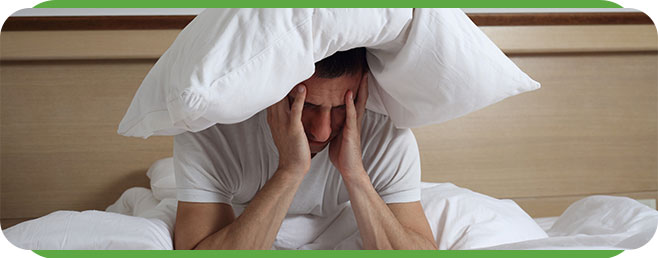How Do You Know if You Have a Sleep Disorder?
Are you unable to sleep peacefully? Are you suffering from sleep deprivation? These conditions can be caused by sleeping disorders. Talk to our team at Koala® Center For Sleep & TMJ Disorders for a solution. For more information, contact us or visit us online to book an appointment. We have convenient locations across the U.S. in Bloomington IL, Peoria/ Dunlap IL, El Paso TX, and Wausau WI.




Table of Contents:
Can you self-diagnose a sleep disorder?
What causes sleeping disorders?
How do you get tested for sleep disorders?
How many hours of sleep is healthy?
Sleep is one of the most important bodily functions, and something that countless people look forward to every night. Unfortunately for some, sleep does not come as easy as simply resting your head on your pillow and closing your eyes—it can be incredibly difficult to get a good night’s rest, and oftentimes there is no good reason. In many cases, a sleep disorder is to blame for poor quality rest, but this is not always the case and can be near impossible to tell without the help from a sleep specialist.
No, you cannot self-diagnose a sleep disorder. The reason for this is that sleep disorders are complex and typically multifaceted, requiring many years of experience, training, and knowledge to properly pinpoint and diagnose. It is all too easy to find a list of disorders online that match your symptoms, but unless you have an official diagnosis from an accredited medical professional, you can never be sure if you have a sleep disorder or another condition closely related to one.
If you recognize that you or someone you love is exhibiting any symptoms of a sleep disorder, it is crucial that you seek medical advice from a sleep physician, such as a dentist.
Sleep problems can be caused by various factors, and although causes may differ, the end result of all sleep disorders is the same: the body’s natural circadian rhythm (cycle of sleep and daytime wakefulness) is disrupted or overemphasized.
Factors that can cause sleep problems include:
– Physical disturbances (for example, chronic pain)
– Medical issues (for example, sleep apnea)
– Psychiatric disorders (for example, depression and anxiety)
– Environmental issues (for example, too bright, too loud)
Other factors can interfere with sleep, including:
– Genetics
– Night shift work
– Medications
– Aging
To get tested for a sleep disorder, you must go to a sleep clinic. The sleep clinic you decide to go with will depend on your specific condition, as well as its severity and impact on quality of life. For sleep disorders related to the mouth and jaw, such as sleep apnea, TMJ disorder, or bruxism, it is best to consult a dentist who specializes in treating sleep disorders, as they are the most qualified and experienced for treating these conditions.
If you want to get tested for a sleep disorder, call Koala® Center For Sleep & TMJ Disorders today, or schedule one online via our website. We serve patients from Illinois, Missouri, Texas, Wisconsin, and Indiana.
In general, between 7 to 10 hours of sleep a night is considered healthy for most adults, although some individuals have unique sleep requirements. Children need more sleep as their bodies and brains are growing and developing at an accelerated rate. In most cases, children benefit from 10 to 16 hours of sleep a day, including nighttime and nap time. There is a common misconception that elderly people have lesser sleep requirements, but this is not completely true—people over the age of 65 experience the greatest health benefit when sleeping for 7 to 9 hours a night.
The sleep team at Koala® Center For Sleep & TMJ Disorders can help you find out if you have a sleep disorder. We serve patients from all across the United States, and currently have seven locations: one in El Paso, TX; one in Wausau, WI; one in one in Bloomington, IL; and one in Peoria – Dunlap, IL. Schedule an appointment at any of our locations today to receive top-level care from experienced TMJ disorder specialists. We look forward to serving you!

Additional Services You May Need
▸ KoalaKIDZzz®
▸ Sleep Apnea
▸ Snoring
▸ TMJ Disorder
▸ Fatigue
▸ Sleep Disorders
▸ Weight Loss
▸ CPAP Alternative
▸ Oral Appliances




